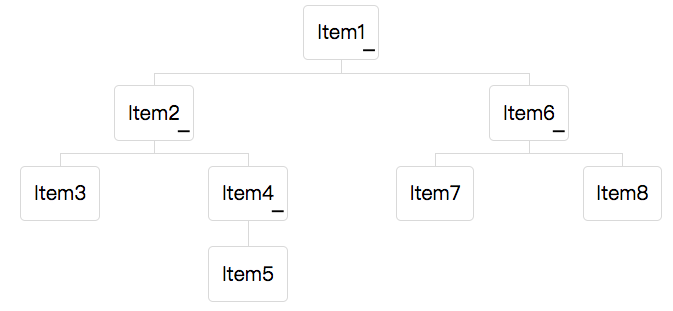Organigram"
From Documentation
Charlesqiu (talk | contribs) |
Charlesqiu (talk | contribs) |
||
| Line 12: | Line 12: | ||
<tt>Organigram</tt> is a component for showing organizational chart by using tree data structure, it also support TreeModel to hold data, Organigram only accept one <tt>Orgchildren</tt> as child, developers can put <tt>Orgchildren</tt>, <tt>Orgitem</tt> and <tt>Orgnode</tt> in <tt>Organigram</tt> to display data. | <tt>Organigram</tt> is a component for showing organizational chart by using tree data structure, it also support TreeModel to hold data, Organigram only accept one <tt>Orgchildren</tt> as child, developers can put <tt>Orgchildren</tt>, <tt>Orgitem</tt> and <tt>Orgnode</tt> in <tt>Organigram</tt> to display data. | ||
| − | + | = Browser Support = | |
| + | *for IE, this component only supports 11+ | ||
= Example = | = Example = | ||
Revision as of 09:19, 30 October 2018
Organigram
- Java API: Organigram
- JavaScript API: Organigram
- Available for ZK:
-

[Since 8.6.0]
Employment/Purpose
Organigram is a component for showing organizational chart by using tree data structure, it also support TreeModel to hold data, Organigram only accept one Orgchildren as child, developers can put Orgchildren, Orgitem and Orgnode in Organigram to display data.
Browser Support
- for IE, this component only supports 11+
Example
<organigram width="600px">
<orgchildren>
<orgitem label="Item1">
<orgchildren>
<orgitem label="Item2">
<orgchildren>
<orgitem label="Item3"/>
<orgitem label="Item4">
<orgchildren>
<orgitem label="Item5"/>
</orgchildren>
</orgitem>
</orgchildren>
</orgitem>
<orgitem label="Item6">
<orgchildren>
<orgitem label="Item7"/>
<orgitem label="Item8"/>
</orgchildren>
</orgitem>
</orgchildren>
</orgitem>
</orgchildren>
</organigram>
<zscript><![CDATA[
DefaultTreeNode root = new DefaultTreeNode(null, new DefaultTreeNode[]{
new DefaultTreeNode("Item1", new DefaultTreeNode[]{
new DefaultTreeNode("Item2"), new DefaultTreeNode("Item3"), new DefaultTreeNode("Item4")
})
});
DefaultTreeModel model = new DefaultTreeModel(root);
model.addOpenPath(new int[]{0});
]]></zscript>
<organigram width="600px" model="${model}"/>Selection
Organigram supports single selection, Orgitem can be selected by users clicking or by programing:
Organigram.setSelectedItem(Orgitem) , Orgitem.setSelected(Boolean).
When an Orgitem is selected, the onSelect event will sent back to the server to notify the application, you can call Organigram.getSelectedItem() to get the selected Orgitem.
Example:
<organigram width="600px" onSelect="Clients.log(self.getSelectedItem().getLabel())">
<orgchildren>
<orgitem label="Item1">
<orgchildren>
<orgitem label="Item2"/>
<orgitem label="Item3" selected="true"/>
<orgitem label="Item4"/>
</orgchildren>
</orgitem>
</orgchildren>
</organigram>Supported Events
| Event: SelectEvent
Notifies one that the user has selected a new item in the organigram. |
- Inherited Supported Events: XulElement
Supported Children
* Orgchildren
Version History
| Version | Date | Content |
|---|---|---|


